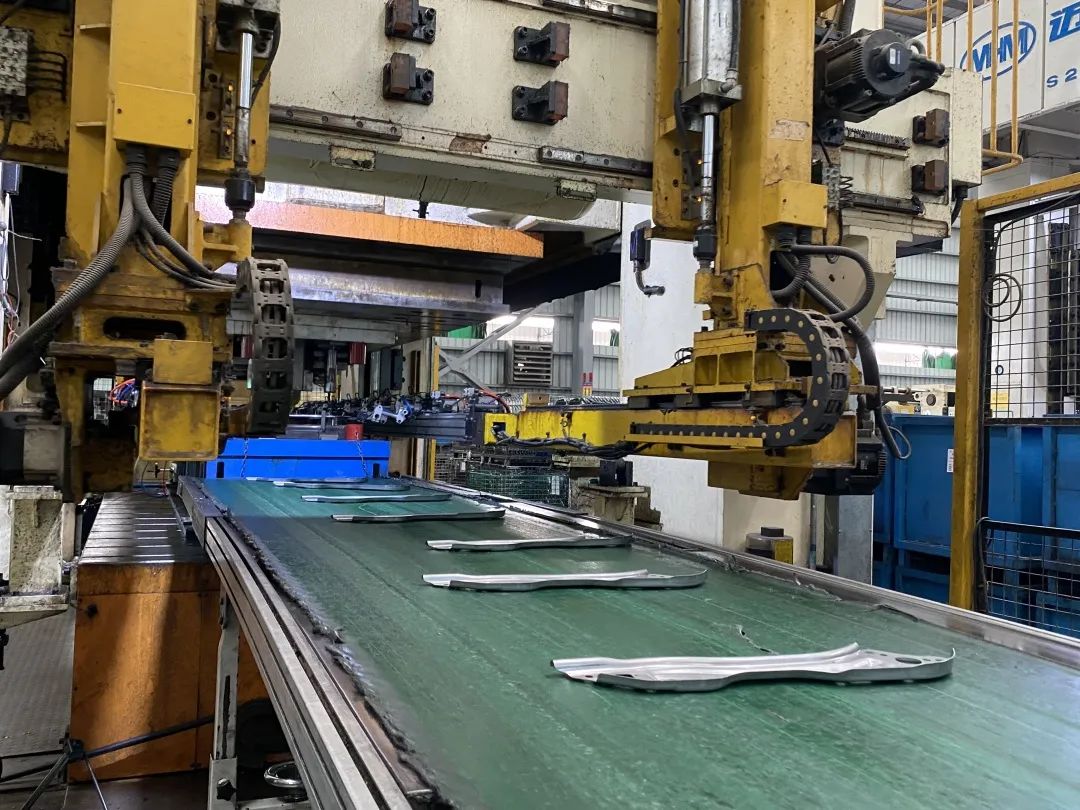Take your seat according to the number. Don't choose the wrong stamping oil!
February 21, 2023
Do you know how to choose the stamping oil suitable for the factory? Understand stamping oil Stamping oil refers to the processing lubricating oil used in various stamping and forming processes. In order to make the stamping oil play its role, professional stamping oil needs various additives, instead of being used as stamping oil by filling oil casually.

In the stamping process of various materials, stamping oil can play these three roles: 1. The new material broken from the plate is in contact with the cutting tool. At this time, due to boundary friction, adhesion will occur. In order to reduce the adhesion of the cutting edge, the stamping oil is required to have good extreme pressure. 2. In the blanking process, a large amount of heat will be generated, making the temperature of the die rise, which will affect the accuracy of the processing size and the life of the die. Therefore, the heat dissipation, cooling and extreme pressure of the stamping oil are required to be better 3. On the contact surface between the concave and convex die and the plate, there is slight sliding between the plate and the die during the stamping process, so the end face wear will occur. In order to reduce end face wear, it is required that the stamping oil should have a certain appropriate viscosity and can bear a certain thickness of oil film strength. 4. During the stamping process, a large amount of heat will be generated, which will increase the temperature of the die, thus affecting the accuracy of the processing size and the life of the die. Therefore, the heat dissipation of the stamping oil is required to be good. About stamping oil The following are some common sense about the selection of stamping oil based on the successful experience of more than 20 years in the metal processing industry, so that you will not be confused when selecting stamping oil: First of all, in the selection of stamping oil, because in the stamping process, different materials are used, the working speed of the stamping machine is different, the tensile coefficient of the workpiece is different, the shape of the workpiece is different, and the subsequent process requirements are different, all these factors and conditions will also affect the selection of stamping oil. Therefore, before selection, it is necessary to communicate with the manufacturer about the process requirements and processing requirements. The following are common options for stamping oil. You can take your seats according to the number. Principles for selection of stamping oil 1. If the silicon steel sheet is pressed, the silicon steel sheet is a material that is easy to be punched. Most of the requirements are that the surface of the workpiece can be dried quickly without residual oil after punching. At the same time, it is also necessary to prevent burr during punching and cutting, and prolong the service life of the die. Therefore, if it is the stamping oil for silicon steel sheet, it is recommended to select the stamping oil with slightly higher viscosity, volatile, no carbon deposit after annealing, and certain anti-rust performance. 2. If the stamping is tinned steel plate, it is recommended to select the stamping oil without chlorine to prevent the workpiece surface from whitening. 3. For stamping aluminum or aluminum alloy, it is recommended not to use stamping oil containing chlorine and sulfur additives, otherwise it is easy to be oxidized. Generally, it is recommended to use stamping oil with PH as neutral. 4. If the stainless steel plate is pressed, it is easy to produce work-hardening phenomenon during the stamping process. It is recommended to select the stamping oil with high oil film strength and good sintering resistance. The stamping oil is required to have certain viscosity and good cooling property. 5. For punching copper or copper alloy, it is recommended not to choose stamping oil containing chlorine and sulfur additives, but to choose stamping oil with oiliness and good fluidity. 6. For punching stainless steel, it is recommended to use special stamping oil for stainless steel, which has high requirements for extreme pressure, no burr on the workpiece, and obvious protective effect on the mold. Confirm when selecting 1. What stamping process is it: punching? Deep drawing? Deepening and thinning? bend? 2. Material of workpiece: what steel? Aluminum, copper, alloy, silicon steel sheet? 3. What is the tensile coefficient? How many times of drawing? 4. What is the tonnage of the press? Working speed? 5. What is the shape of the workpiece? What are the problems of the scrap during the trial drawing? The stamping oil manufacturer also needs to understand the actual situation of the customer according to the above specific problems, so as to more accurately recommend the appropriate stamping oil. At the same time, the stamping oil formula must be determined according to the customer's usage habits. I have seen a lot of stamping oil with "mutton for dog meat". It is said that stamping oil is actually replaced by loading white mineral oil, and the price is cheap. For some simple stamping processes with low requirements, we can also deal with them. For some precision stamping processes with high requirements for surface finish, we still need to use professional stamping oil. Otherwise, the stamping workpiece will have problems over time. For the long-term interests of the company and product quality, we recommend that we try to use professional stamping oil, so as to avoid unnecessary trouble.






